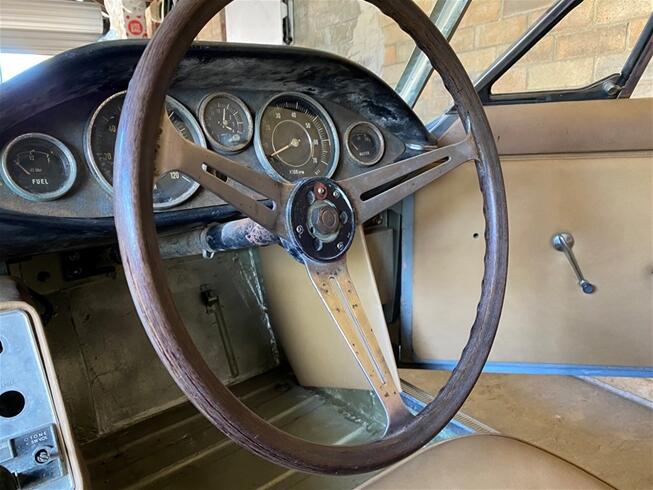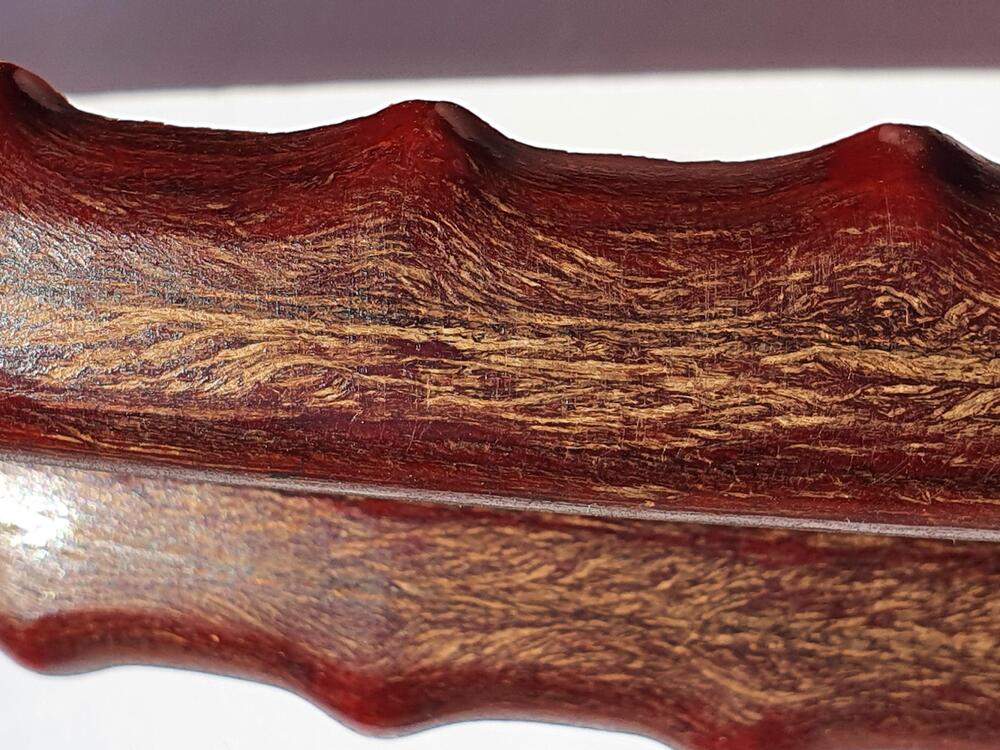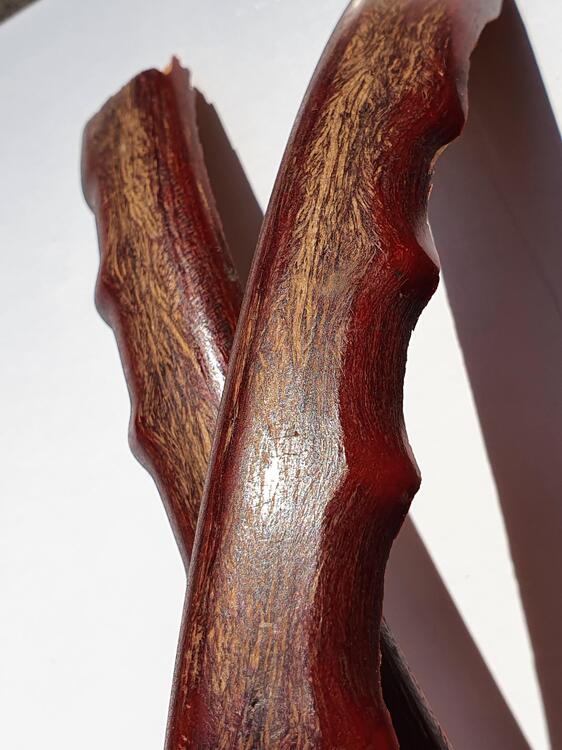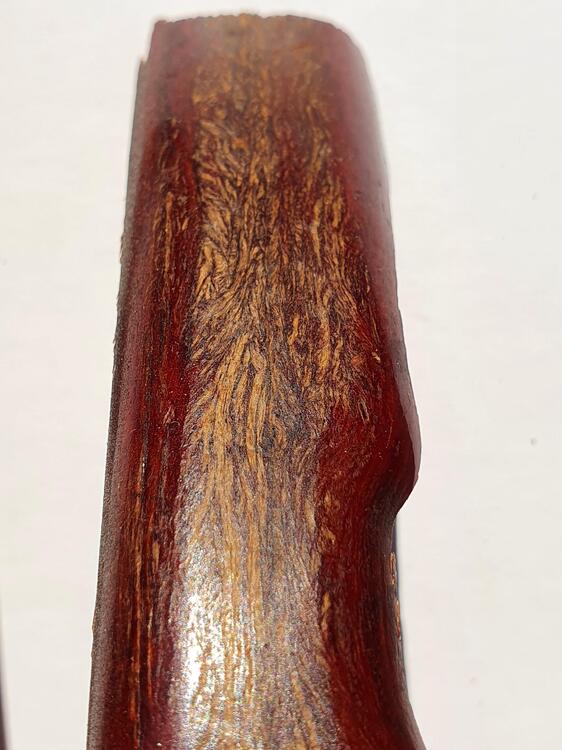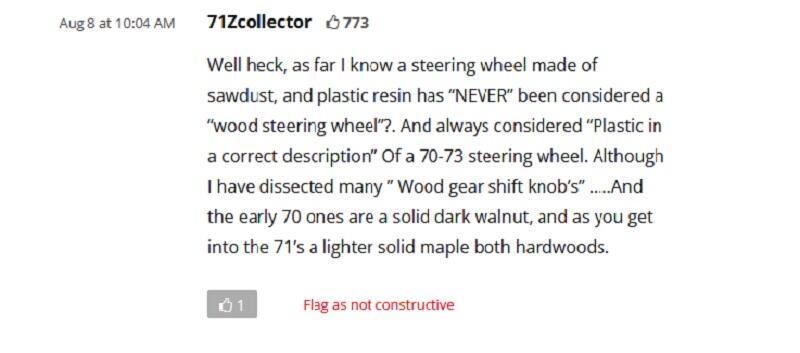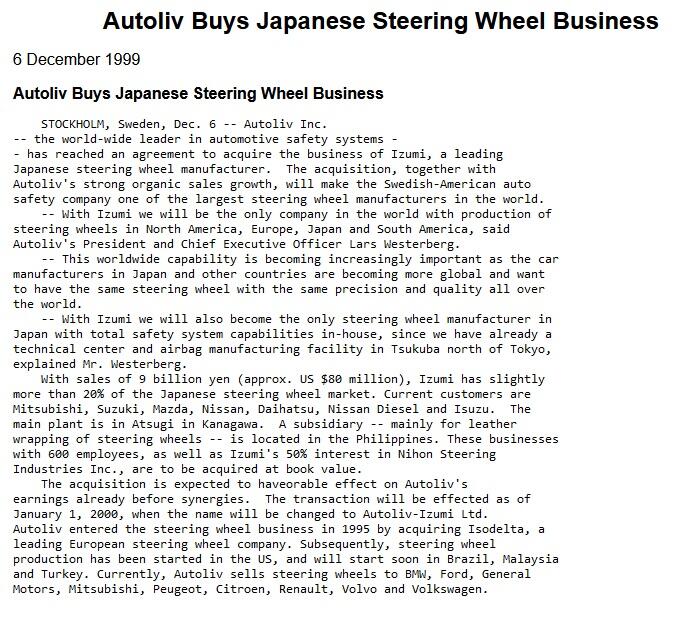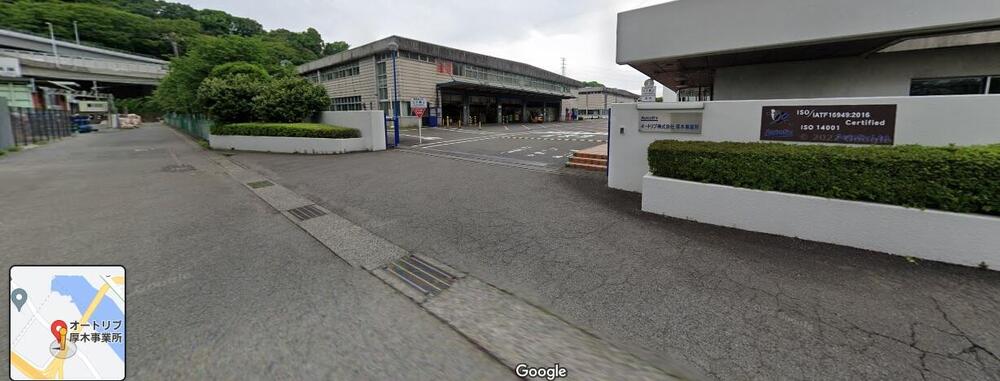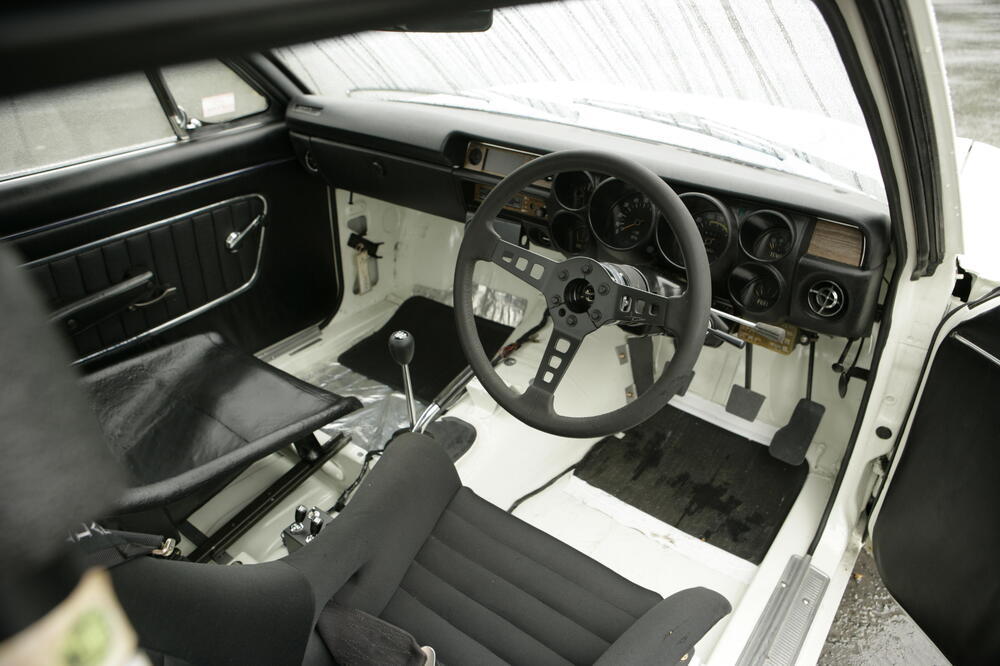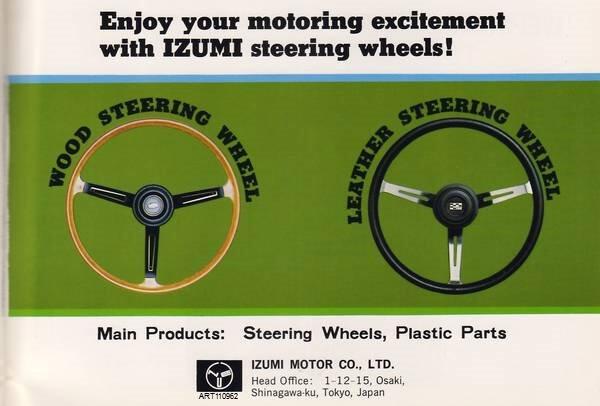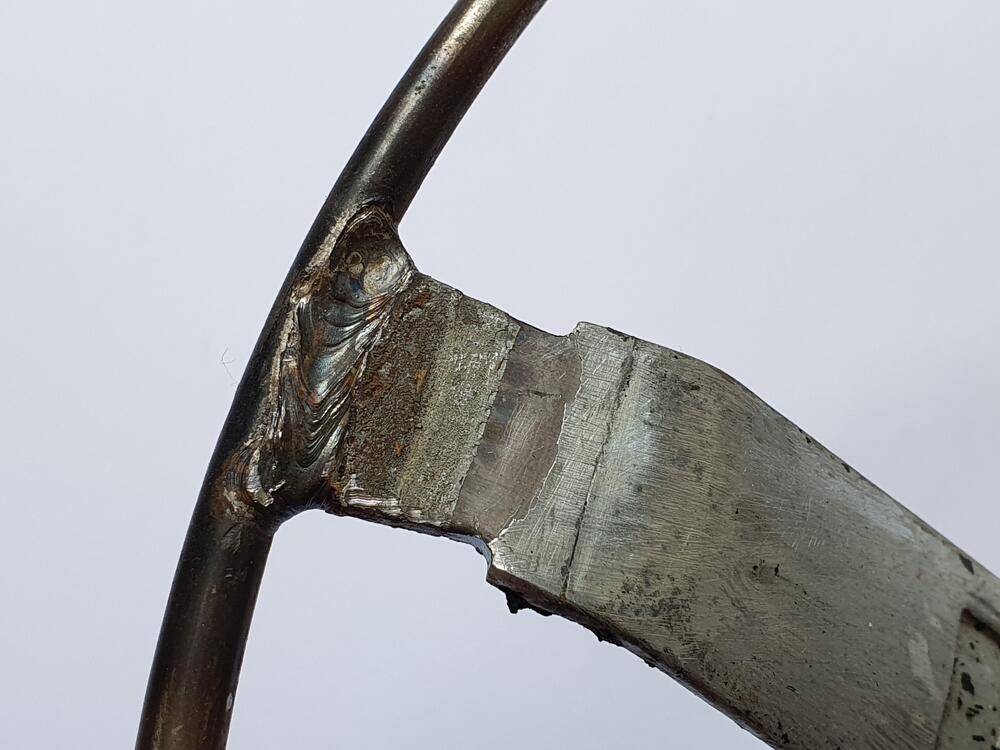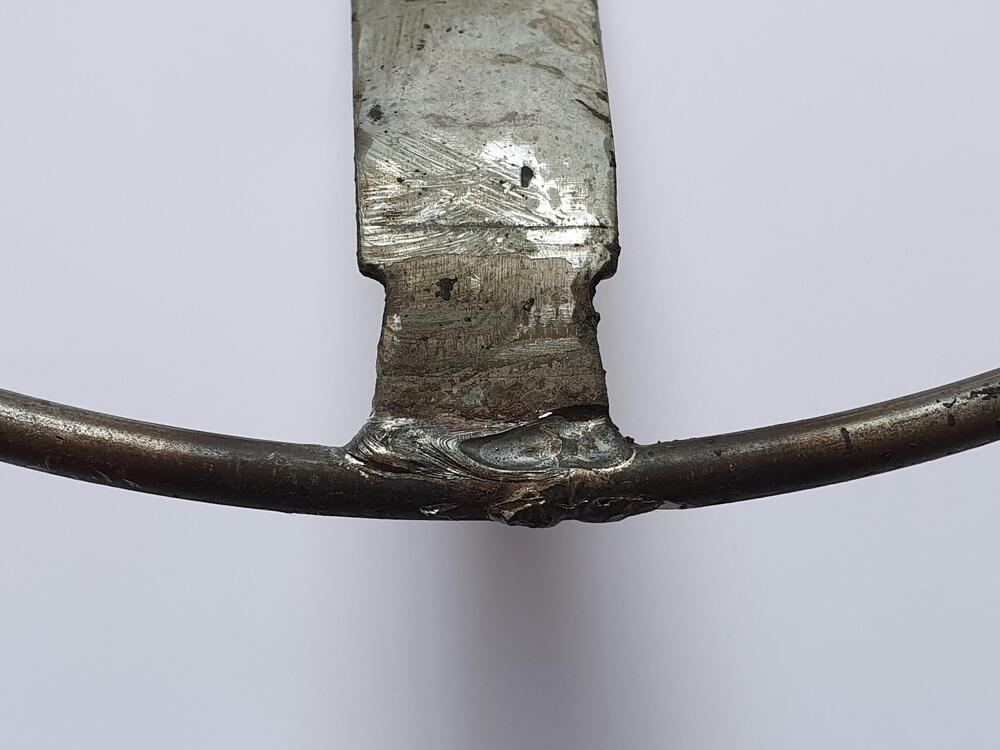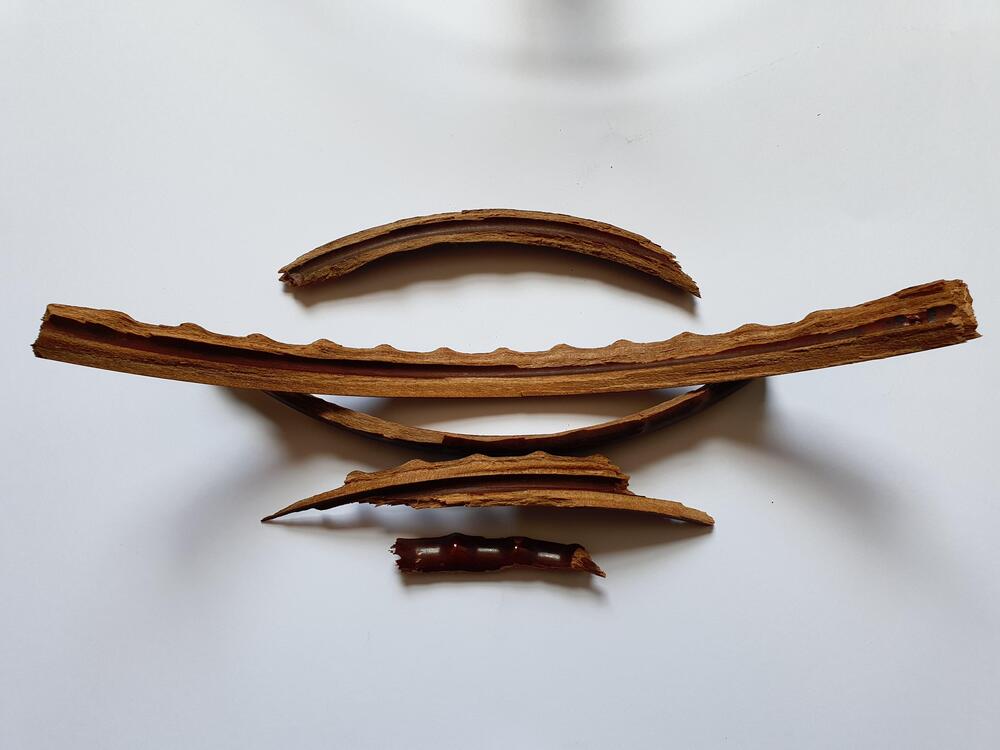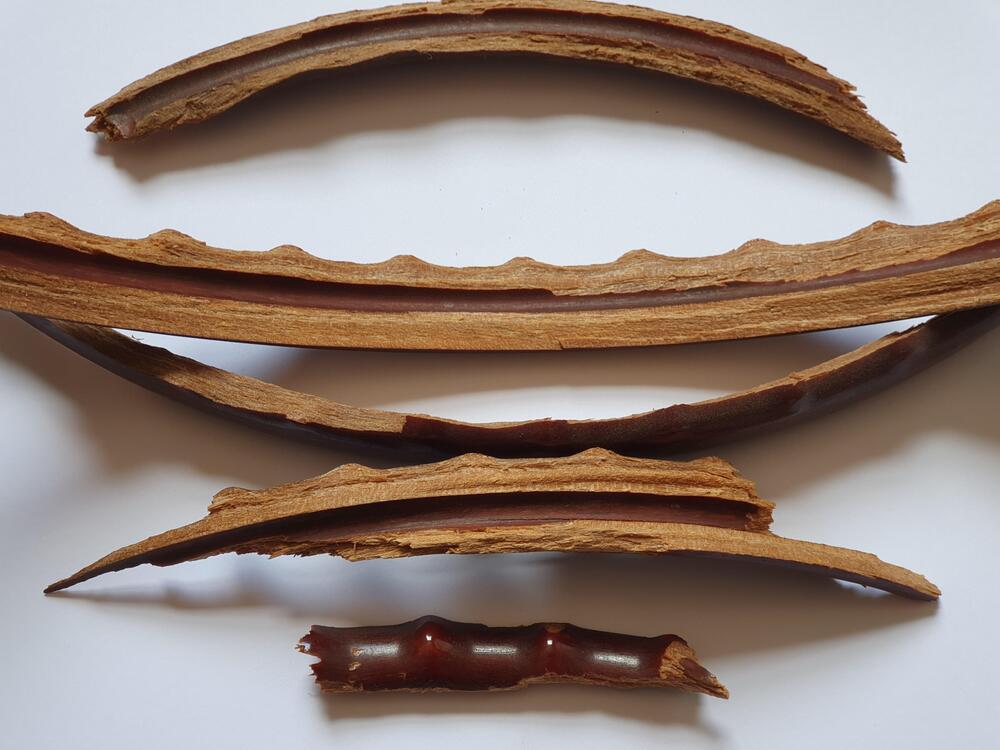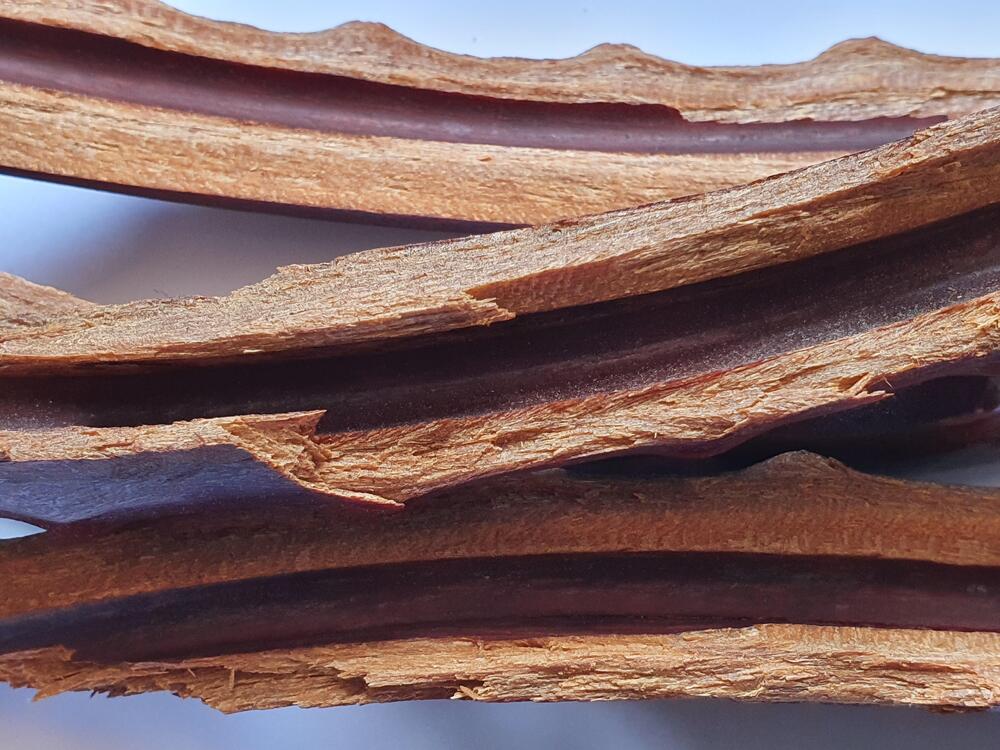HS30-H
Free Member
-
Joined
-
Last visited
-
Currently
Viewing Topic: Z's on BAT and other places collection
Everything posted by HS30-H
-
'69 through '73 Steering Wheels - Wood, or Plastic?
No need for details in that context. I think pretty much everybody is familiar with bentwood furniture and the general concept of materials such as MDF. Part of my job involves sourcing and exporting vintage 20th Century modernist furniture, so I'm up to speed with the processes and materials that 26th-Z was referencing. I don't think I need to explain any tongue-in-cheek banter between myself and 26th-Z to you either. I agree with you about the art (or perhaps craft...) but if the final product really does seem like plastic to you, then I can't help you. I think it is bizarre for somebody to look closely at one of these wheels, look at the photos on this thread, and still talk about 'plastic'.
-
'69 through '73 Steering Wheels - Wood, or Plastic?
Already covered in post #6 of this thread, I'd say. Izumi - and Matsuo san - mentioned that the wood was processed in 'fibre' (conjoined strands, oriented lengthways) form. It is not a solid piece of wood in the way that traditional, mostly hand-made wood rim steering wheels used to be. The only hint (and it is only a hint....) of any seam or join I can detect is on the inside edge, where I think there is a faint line. It may be some sort of mould tooling joint line, which would make sense. Just such a view is visible from the photos in the first post. The final photo homes in on an imprinted 'negative' of the welded joint between a spoke and the outer steel hoop. There's still 'grain' visible, but the impression of the welded joint is pushed into it. You can also clearly see the dark and smooth area where the wood material was pressed around the main part of the steel hoop. I would expect the steel spokes and hoop to conduct more heat than the wood and the resin, and we know that the mould tooling itself was hot. That seems to be one of the things that affects the surfaces most in contact with the metal. I already did this, with two results. First I burned a section with the outer (shiny, dark) layer in situ and got grey smoke and a distinctive smell. Then I chipped off some of the more obvious wood inner and burned that on its own. Much lighter smoke and a very typical burning wood smell. The burned black wood can be used to write and draw, like a piece of charcoal. The material is incredibly tough. It was hard to remove from the steel rim (although it was not adhered to it) and difficult to split the material into smaller pieces. It wants to split with its circumferential grain and it is very resistant to breaking across it. It makes me think of some sort of hardwood, like Indian Rosewood.
-
'69 through '73 Steering Wheels - Wood, or Plastic?
Good stuff Ian, thank you. Looking more closely at the CSP311's wheel, it does indeed look very similar to the rim type used on the S30s. I saved this photo from the Silvia that sold in Australia last year, and which shows some partial de-lamination (sun damage?) of the wheel rim which is quite revealing I think:
-
'69 through '73 Steering Wheels - Wood, or Plastic?
Some more photos from my 'autopsy'. This time from the outer surface of the rim where 50+ years of use has worn through the outer layer and revealed a naturally-grained surface below it:
-
'69 through '73 Steering Wheels - Wood, or Plastic?
I hear what you are saying, but I'm still going to push back. Izumi called these steering wheels 'wood'. They had already been making moulded plastic steering wheels - as seen on earlier, more utilitarian Nissan models - for many years. They would not have bothered using wood/wood fibre unless they were going to make a point of it. There were plenty of other - synthetic, readily available, repeatable - materials available for them to use as the reinforcement component, so why wood fibre? The answer is staring us in the face. It was because they were engaging is mass-producing something that would otherwise be regarded as a hand-made item, as seen from contemporary specialist makers like Bluemels, Springalex, Moto-Lita, Nardi, MOMO, Les Leston and their ilk. They used wood because they were specifically making wood-rimmed steering wheels for these cars.
-
'69 through '73 Steering Wheels - Wood, or Plastic?
Ha ha! I'm always hopeful, but not so sure. I think we will see people talking about "plastic" steering wheels for many years yet. I still see Goertz getting credit for something he never touched (including the MF10 Toyota 2000GT). Excellent! And the president had such a great classical name too, almost like from a Taiga drama. So we can see where the 'Izumi' name came from. Thank you! One of my key motivations with this thread is to somehow give due credit to Izumi for their fine work. And yes, I do think it is fine work. When I think about it, I don't know how they managed to make these steering wheels for Nissan at an acceptable cost. There's a lot of processing in there. Many of the parts suppliers for our cars were independent companies who specialised in their particular fields, often to an almost artisanal level. I have seen this many times in Japan. Such companies still exist, but their craftsmen have been retiring and/or dying out whilst bigger companies gobble them up. It would be sad to think that companies like Izumi came and went without people like us - who literally lay hands on their work when we interact with our cars - even knowing their name.
-
Z's on BAT and other places collection
It's a dirty job, but somebody's got to do it. Seriously, that's just the type of rivet-counting that we need to be doing here at classiczcars.com. Here today, gone tomorrow posts on the likes of Bring-A-Troller and Farcebook are just not good enough. There are plenty of things still to be understood regarding the S30-series Z, and plenty of myths still to be dispelled.
-
'69 through '73 Steering Wheels - Wood, or Plastic?
I think these 'collector's items' are worth saving for posterity: I must say '71Zcollector' is my kind of guy. He knows plastic when he sees (and feels...) it and he's sticking to his guns. That's the spirit!
-
'69 through '73 Steering Wheels - Wood, or Plastic?
My *guess* - informed only by what I see - is that there must have been some sort of finishing performed on the outer surface with a coat of lacquer or varnish. When you sand them down you typically see an outer layer of clear, after which you get into the organic material. I can't imagine they would come out of the press tooling with a 'finished' rim. That would be too clever! The other thing I note is that the steel part under the rim is bare metal, not painted. Therefore I think the spokes and centre were painted black after the rim was formed around the steel hoop part (high heat involved) and that may point to a certain amount of rim finishing being necessary too. Seems very likely, but I wonder if - given the CSP's 'premium' nature - Nissan upped the quality on it and specified a more hand-finished wheel for it? It certainly looks more 'Italianate' than the stock SP/SR wheels, and very Nardi-like. Is there a split line/joint in the CSP's rim?
-
'69 through '73 Steering Wheels - Wood, or Plastic?
This whole forum is about "Japanese cars". This thread focuses on a component which was made in Japan by a Japanese company using an innovative and (evidently) somewhat obscure process, and which is - clearly, repeatedly - misunderstood. And blinkers? I suggest you might like to pay some critical attention to those who want to tell us that these are "American cars, Made In Japan"... Rather than "calling out anybody who doesn't agree with..." me, I'm interested in getting to the truth. My eyes and ears are open to learning and every day is a school day. If robust, reasoned debate is a little too upsetting for you then by all means bow out. The whole point of this thread seems to have whistled over your head at around 1,500 feet. I started it in response to yet another "they are plastic" statement on Bring-a-Trailer. You are guessing - as predicted - at the resin to wood content percentage, stating a generality as though it applies here. Of course, you're probably not far off, but - as I predicted - you are guessing just the same. I'm going on what I see in front of me. Feel free to chip (see what I did there?) the rim off one of these steering wheels and tell me what you see in front of you. No need to count the rings or get into dendrochronology though. Just a natural response to organic-derived matter will do. Yes, Straight, no spin. The rim is - I'll say it again - made from wood. Wood (hey, Cellulose!) plus a relatively minor content of resin of some sort (ironically, very likely to be cellulose-derived too) and not majority "plastic" in the sense implied by the people I'm kicking back against. You yourself are nit-picking by trying to refine this any further than that. How about you stick up for Izumi some?
-
'69 through '73 Steering Wheels - Wood, or Plastic?
So you're making my point for me. "1 to 5%" resin and 99 to 95% organic wood product, but you think I'm "nitpicking" when I call out somebody who says "they are plastic"? Yes, obviously and famously, pearl-clutching safety standards saw their demise. '74 up they were no more. Hence the thread title.
-
Z's on BAT and other places collection
I might just as well quote myself for every Bring A Trailer S30-series Z auction, because the same sticky swamp of 'Series' and 'Model Year' conflation and claptrap comes up every time. Sure enough, on the regular, it rears its ugly mug on the 919 12/70 HLS30UV auction currently running.
-
'69 through '73 Steering Wheels - Wood, or Plastic?
Sadly, but almost inevitably I think, Izumi was bought up and merged into the global giant Autoliv group some years ago. The old Izumi factory still continues in Atsugi, Kanagawa prefecture. It would be nice to imagine they had some sort of corporate archive.
-
'69 through '73 Steering Wheels - Wood, or Plastic?
My KPGC10 Skyline 2000 GT-R track car also wears an (aftermarket) period IZUMI steering wheel, similar to the Datsun Compe style vinyl with moulded stitching detail. Note the 'Nardi' style 'Izumi' signature engraving on the RH spoke:
-
'69 through '73 Steering Wheels - Wood, or Plastic?
Hi Kats. I remember having a similar conversation with Matsuo san, but I have also seen a period (early/mid-1970s?) Japanese magazine article which covered Izumi and their factory. Kind of a tie-up with their aftermarket wheel advertising. It would have been in Motor Fan, Motor, Driver or one of the similar Japanese monthlies and weeklies. I will see if I can find it again. Yes, Izumi used similar techniques to make the 'wood' steering wheels of 510 Bluebirds, C10-series Skylines and several other models, as well as the vinyl/'leather' covered versions. Their simulated-leather moulded vinyl wheels - complete with faux hand stitching detail, as seen on the 'Datsun Compe' wheels - are also rather clever. Izumi. An interesting company using technology to volume produce products that gave an Italianate 'hand made' feel. It makes me sad to see their fine work dismissed simply as 'plastic'.
-
'69 through '73 Steering Wheels - Wood, or Plastic?
Here's a question. Straight, no spin. Just how much wood do you think is in the rims of these wheels? What percentage of wood, what percentage of "plastic"? What proportions. Ballpark will do. You'll be guessing, of course. So ballpark is OK. I'm looking at the pieces I've chipped off the wheel, and whatever "plastic" is mixed in there is pretty scarce. Most of it seems to be confined to the outer surfaces. I can sand through the shiny stuff and get to the underlying layers of (what I'm calling) wood fibre, and that wood fibre reacts differently than the shiny stuff does. It sands like wood. I splits like wood. It splinters like wood. To all intents and purposes it behaves like wood. The majority component of the wheel rim is wood. In composite form, yes. Of course. I've been pointing that out for years. But wood nonetheless.
-
'69 through '73 Steering Wheels - Wood, or Plastic?
So when the guy on the latest Bring A Trailer 240Z auction refuted my explanation, then doubled down with "Steering wheels on Z's are plastic", you think it would be petty to correct him? That's what I keep seeing. Almost every time these wheels are discussed you see someone - or more - calling them "plastic". It is clear that they think there is no real wood in there at all. Put a few facts in front of them - including the wood composite explanation - and they wriggle with "...yeah, but it's still got plastic in it" or similar. I'm pushing back on that. Thanks. Next time somebody says "Steering wheels on Z's (sic) are plastic", you'll hopefully step up to the plate and introduce them to the pioneering 19th century WPC work of Michel Thonet, John Henry Belter and Isaac Cole as well as Mr Armin Elmendorf and his 1960s OSB patent. Or you could just sit back and let me shout "they are WOOD!" at them...
-
'69 through '73 Steering Wheels - Wood, or Plastic?
The people calling them "plastic" - I'd wager - haven't seen one taken apart as in the above photos. They call them plastic because everyone else does. As far as they are concerned, there is no wood in there at all. They are wrong. The only difference here is (your qualification of) "solid" wood. The Izumi wheel is wood attached to a metal frame. The part that people are calling 'plastic' is actually wood. Real, as in organic,wood. Look at the photos closely. That's not wood dust, wood pulp or wood shavings (as in MDF, for example), that is clearly grained wood. It splits with the grain. Split hairs too much here and you'll find somebody (maybe even me) telling you that your definition of "shaped pieces of solid wood" might also qualify as 'plastic' if they have been stained and lacquered...
-
'69 through '73 Steering Wheels - Wood, or Plastic?
I've been prompted to start a new thread on this subject after reading - for what seems like the thousandth time - somebody describing the OEM steering wheel on a late 1970 production HLS30UV as "Plastic". No. The OEM steering wheel on the '1969 through 1973 production S30-series Z was WOOD. Real wood. They were manufactured for Nissan by specialist Izumi Motor Co. Ltd, based in Shinagawa, Tokyo. Izumi made a wide range of steering wheels for Nissan, as well as selling their own aftermarket 'sports' stering wheels with a cheeky 'Izumi' engraved script which aped Nardi, one of their inspirations. Izumi used a patented high-pressure heat moulding process. Real wood fibres, impregnated with resin, were laid - following the grain - in a heated mould around the steel hoop of the steering wheel. High pressure, combined with that heat, moulded the wood permanently around the hoop and cured the resin. The result was a wood steering wheel, complete with finger grips on the rear, with no joints or seams. No splinters. My theory is that people found them a little 'plasticky' or just couldn't believe they were real wood, and it stuck. After 50+ years it is hard to shake this off, hence me reading a comment on yet another Bring-a-Trailer auction from somebody who is convinced they are plastic. Evidence: I've cut one up. I'm making a 'special' wheel using this 1970 production Izumi as a base (it was already damaged, so don't weep...) and can therefore show what's under the surface. I'll let the photos speak for themselves...
-
Does anyone recogniZe this emblem? Was it for 3x victory 280zx? in 1979,80,81 safarirally? I think NOT!
Nissan's East African Safari Rally 'Triple Crown' of overall wins usually refers to the consecutive wins of 1979, 1980 and 1981. Shekhar Mehta won all three driving Nissan PA10 Violets. The three cars now reside in the Nissan Heritage Collection at Zama. Nissan first won the event outright in 1970, with Edgar Herrmann and Hans Schuller driving a PA510 Bluebird. Herrmann and Schuller won again in 1971 in an HS30 Datsun 240Z. Nissan won again in 1973, with Shekhar Mehta driving an HLS30 Datsun 240Z, so the Z has won the event twice. Winning the Safari Rally was always a big deal for Nissan, and they celebrated their success with many stickers, posters, t-shirts and grille emblems. There are lots of repro stickers on the market these days, some of which take a little too much artistic license, some of which are plain absurd. There's a company making grille badges which takes this absurdity to extremes, mixing the 240Z/260Z/280Z with Martini stripes and the Targa Florio race. A bogus and bizarre combo: What?
-
- just got my '72.
Nissan's S20 engine was nothing to do with Yamaha. It had Prince lineage. The Fairlady Z 432 was a Nissan. There was no 'Datsun Fairlady 432'.
-
Z's on BAT and other places collection
Instances of people feeling the need to coin the term "Series 1.5" only serve to demonstrate what a confected nonsense the whole "Series 1", "Series 2" thing is. The Series is S30.
-
Z's on BAT and other places collection
Not sure how this didn't happen, single car scenario backs up your "$150k+ for the cars they restore" premise, but whatever. Some time ago (prior to Covid...) I was invited to become - in some way(?) - connected to the 'S30 World' operation. No idea what a singularly unpopular character such as myself was expected to add, but there you go. I declined. Looks like I made the right decision.
-
Z's on BAT and other places collection
My impression was that he's restoring cars for his own collection. How do you know they are going to be sold?
-
Let's show vintage racing pictures. I'll start.
This is the front row of the supporting bill GTS class race at the Japan GP meeting on May 4th 1971 at Fuji Speedway. Car No.16 is Kenji Tohira (240ZR), No.24 is Kunimitsu Takahashi (240Z), No.25 is Yoshichika Kiyoma (Z432-R) and No.23 is Haruhito Yanagida (Z432-R). The race was won by Kenji Tohira in his SCCN-entered Fairlady 240ZR, the only Works car in the race.







